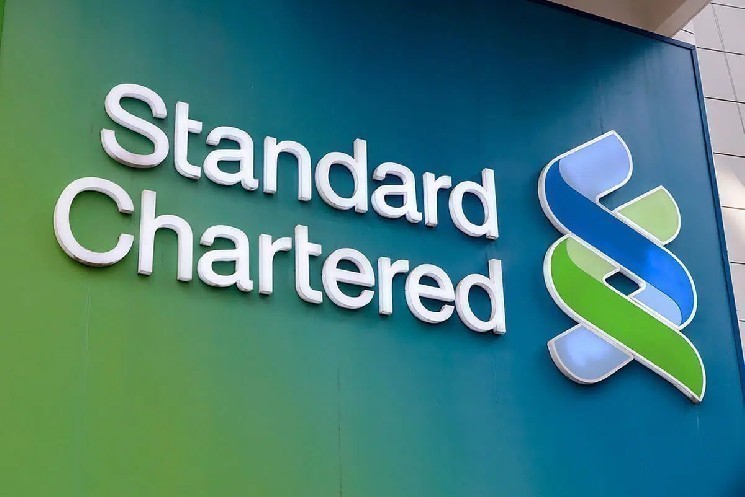Standard Chartered CEO Predicts Blockchain Will Process All Future Financial Transactions
Banking Giant’s Leadership Envisions Blockchain Revolution in Global Finance
In a bold declaration that signals a paradigm shift in the financial sector, Standard Chartered Bank’s CEO recently made headline-grabbing predictions about blockchain technology’s inevitable dominance in global finance. The chief executive asserted that both the multinational banking corporation and Hong Kong’s Special Administrative Region leadership share a common vision: a future where blockchain technology serves as the foundation for all financial transactions worldwide.
The statement represents one of the most unequivocal endorsements of blockchain technology from a major traditional banking institution, potentially accelerating the mainstream adoption of distributed ledger systems across the financial services industry. “In the future, all currencies will be digital, and all transactions will ultimately be settled on blockchain,” the CEO stated, characterizing this transformation not as a possibility but as an “inevitable global trend.” This assessment suggests that the banking giant views the digitization of finance as a fundamental evolution that will reshape payment systems, currencies, and the entire financial infrastructure that underpins the global economy.
Digital Transformation Strategy Positions Standard Chartered at Blockchain’s Frontier
Standard Chartered has been strategically positioning itself at the forefront of this technological revolution, garnering industry attention for its forward-thinking initiatives in digital asset custody services, central bank digital currencies (CBDCs), and tokenization projects. These ventures represent a comprehensive approach to embracing blockchain technology across multiple dimensions of financial services. The banking institution has been particularly active in establishing collaborative relationships with both governmental bodies and private enterprises to expand digital financial infrastructure throughout Asia and the Middle East—regions that are increasingly becoming hotbeds for financial innovation and blockchain adoption.
This collaborative approach demonstrates Standard Chartered’s recognition that building the future of finance requires a multi-stakeholder ecosystem. By working alongside public sector entities developing CBDCs and private sector innovators creating new tokenized asset classes, Standard Chartered is helping to construct the interconnected framework necessary for a blockchain-powered financial system. These partnerships enable the bank to maintain relevance in an evolving landscape while simultaneously shaping the development of emerging financial technologies in ways that align with established banking principles and regulatory requirements.
Legitimizing Blockchain in Traditional Finance: A Turning Point
Financial technology experts have emphasized that such definitive statements from the leadership of globally significant banking institutions substantially enhance the legitimacy of blockchain-based financial systems. When traditional financial powerhouses publicly endorse blockchain technology, it signals to markets, regulators, and consumers that distributed ledger technology has transcended its experimental phase and is now recognized as a viable infrastructure for mainstream finance. This institutional validation serves to diminish lingering skepticism about blockchain’s practical applications beyond cryptocurrency speculation and positions the technology as a cornerstone of future financial architecture.
The timing of Standard Chartered’s blockchain endorsement coincides with a broader industry trend, as numerous traditional financial institutions are rapidly staking their positions in the blockchain ecosystem. This accelerating institutional engagement suggests a competitive recognition that early adopters may secure advantageous positions in the emerging blockchain-based financial order. While some banking institutions initially viewed blockchain technology with caution or outright skepticism, the industry appears to have reached a tipping point where abstention from blockchain integration is increasingly viewed as a strategic liability rather than a prudent avoidance of unproven technology.
From Vision to Reality: The Accelerating Timeline for Blockchain Adoption
The CEO’s declaration fundamentally reframes the conversation about blockchain implementation in global finance. What was once considered a distant possibility or a niche application is now characterized as “a reality of the near future.” This compressed timeline for widespread blockchain adoption reflects the technology’s maturation, improving scalability solutions, and growing institutional comfort with distributed ledger systems. Standard Chartered’s public commitment to blockchain technology suggests that major banking institutions are not merely exploring blockchain as a theoretical concept but are actively incorporating it into their strategic roadmaps and infrastructure planning.
The transition to blockchain-based global payment systems promises significant advantages over current financial infrastructure, including enhanced transparency, reduced settlement times, minimized counterparty risk, and potentially lower transaction costs. However, this transformation also presents substantial challenges related to regulatory compliance, cross-border governance, privacy considerations, and technical integration with legacy systems. Standard Chartered’s leadership appears confident that these obstacles can be overcome, setting the stage for what could be the most significant restructuring of financial infrastructure since the advent of electronic trading.
Implications for Global Financial Markets and Institutional Adaptation
The implications of Standard Chartered’s blockchain vision extend far beyond the bank’s own operations, potentially influencing how central banks develop digital currencies, how regulatory frameworks evolve to accommodate distributed financial systems, and how market participants prepare for a future where tokenized assets and blockchain-settled transactions become the norm. This anticipated shift will likely require substantial adjustments from financial institutions worldwide, necessitating investments in technological capabilities, regulatory engagement, and workforce expertise to remain competitive in the blockchain-enabled financial ecosystem.
As blockchain technology continues to evolve from experimental projects toward enterprise-grade implementation, financial institutions that proactively adapt their business models and operational frameworks will be better positioned to thrive in this new paradigm. Standard Chartered’s public commitment to blockchain technology serves as both a prediction and a catalyst—signaling to the market that one of banking’s established players sees blockchain not as a disruptive threat but as the inevitable infrastructure of future finance. While the bank appropriately notes that its statements do not constitute investment advice, they nonetheless provide valuable strategic insights for financial institutions, regulators, and investors navigating the intersection of traditional banking and emerging financial technology.
This article represents reporting on industry developments and does not constitute investment advice.


